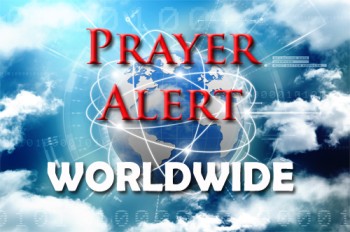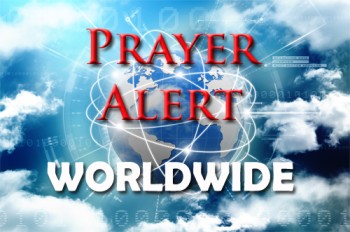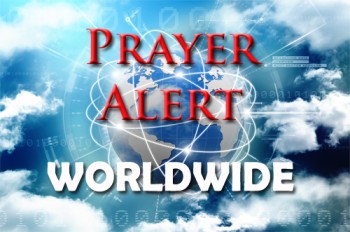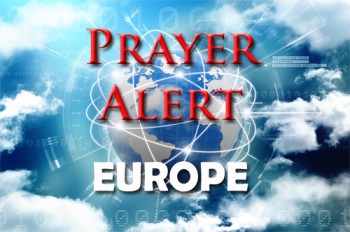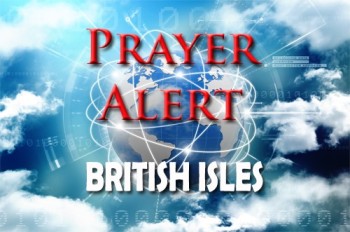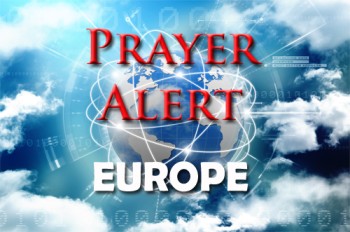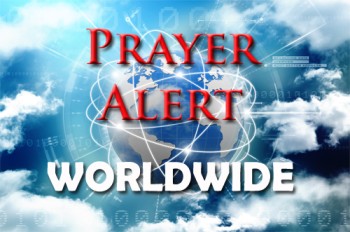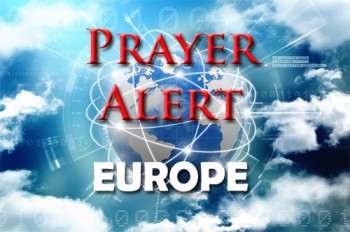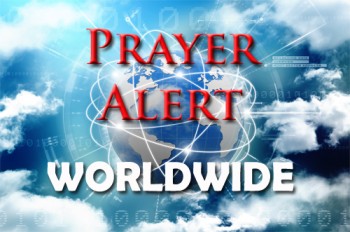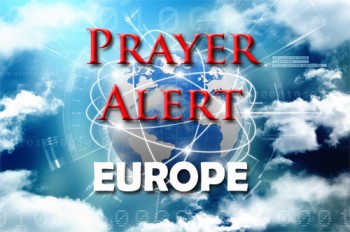Displaying items by tag: Threat of war
Israel / Lebanon: UN peacekeepers ‘more crucial than ever’
UN peacekeepers on the Israeli-Lebanese border are now more crucial than ever, according to their chief Jean-Pierre Lacroix. Cross-border fire between Israel and Hezbollah has increased, raising fears of a broader regional conflict. This concern grew following the recent killings of a top Hamas leader in Iran and a Hezbollah commander in Beirut. Lacroix emphasised UNIFIL's vital role as the only liaison between Israeli and Lebanese sides, helping to prevent misunderstandings and unintended escalations. UNIFIL, with 10,000 troops in southern Lebanon, conducts regular patrols and facilitates humanitarian efforts. Lacroix stated that peacekeepers would remain unless their mission becomes untenable or security threats become severe. He said a Gaza ceasefire is key to de-escalation on the Israeli-Lebanon border, to prevent further casualties and destruction. Meanwhile, several European countries have urged their nationals to leave Lebanon because of the increased threat of war: see
China: land grab
A meeting between China’s defence minister Wei Fenghe and his US counterpart Lloyd Austin took place during an Asian security summit in Singapore. The hour-long meeting took double the time allotted. The USA is concerned about China’s increasingly unsafe, aggressive, unprofessional military behaviour, which indicates an attempt to change the status quo. A Chinese fighter plane dangerously intercepted an Australian military surveillance plane over the South China Sea, and Chinese warplanes harassed Canada’s aircraft monitoring North Korean sanction evasions. ‘If anyone dares to split Taiwan from China, the Chinese army will definitely not hesitate to start a war no matter the cost,’ said Fenghe. The Chinese minister also pledged, ‘Beijing will smash to smithereens any Taiwan independence plot and resolutely uphold the unification of the motherland. Taiwan is China’s Taiwan. Using Taiwan to contain China will never prevail.’ Joe Biden intends to spend more time on Asian security issues after months focusing on Russia’s invasion of Ukraine.
Turkey: preparing a military move into Syria
President Erdogan is giving signals of an imminent cross-border large-scale military incursion into Syria. Military equipment is on the frontier, and artillery shells now pound positions held by Syrian Kurdish armed forces. Senior officials and analysts believe operations against the groups will commence soon, hoping to conclude before the NATO summit on 29 June. ‘We will crack down on them suddenly overnight’, Erdogan told reporters. The US-backed Syrian Democratic Forces (SDF) said it will coordinate with Syrian troops to fend off any Turkish invasion. An SDF commander said Damascus should use air defence systems against Turkish planes. Turkey’s vowed new offensive will be on areas controlled by the Kurdish YPG militia, a key part of the SDF. Syria warned Turkey there will be no compromise on territorial integrity. Turkey considers the YPG a terrorist organisation. Syrian Kurdish forces are backed by Washington, and co-ordinated with Syria and its ally Russia. See
Ukraine: no other path than NATO
Ukraine’s president has said joining NATO would guarantee his country's security. He says it will not be easy, but there is no other path for Ukraine. The UK's defence secretary, Ben Wallace, said Russia will be judged by its actions. ‘We've seen the opposite of some of Russia’s statements. We've seen an increase of troops over the last 48 hours up to 7,000, we've seen a bridge constructed from Belarus into Ukraine - or near Ukraine. At the moment Russia’s troop build-up continues.’ Wallace says NATO is united and is ‘deadly serious on how we're going to face the threat being posed to Ukraine and potentially our security’. Speaking after a meeting of defence ministers, he says it's becoming ‘tragically normal’ for Russia to use ‘malign activity and threats to try and get its way’ and Europe has to respond to that, adding, ‘This is a real challenge to the stability of Europe.’
UK 'not optimistic' Russian invasion can be stopped
Defence secretary Ben Wallace will soon be travelling to Moscow to meet Russia's defence minister, but he is lowering expectations of a diplomatic breakthrough. He says there is a chance a Russian invasion could be stopped, but he’s ‘not optimistic’. The UK's response to Russia's military buildup has been more muscular than most. They have supplied Ukraine with 2,000 light anti-tank weapons and troops to help train them. But not all NATO allies are willing to do the same. Germany's new government warned ‘supplying Ukraine with weapons could escalate the conflict’. Instead, Berlin is supplying Ukraine with ‘non-lethal’ field hospitals and 5,000 military helmets. Poland and Latvia have publicly criticised Germany's stance. Wallace hopes that Germany will support tough economic sanctions. After meeting NATO’s secretary general, Mr Wallace said the UK could support NATO by ‘increasing forces on land, sea or air to deter any further Russian aggression’, and could send Ukraine more weapons.
Germany: navy chief resigns
The head of the German navy, Kay-Achim Schönbach, made controversial comments while speaking at a think-tank. On a video later published on social media, he said Putin would not invade Ukraine and needed to be treated as an equal by the West. Also the Crimean peninsula, which Russia annexed in 2014, ‘is gone and will never come back’. Ukraine described Mr Schönbach's comments as ‘categorically unacceptable’. He resigned from his role to ‘avert further damage’. Putin wants the West to stop Ukraine joining NATO, and NATO to abandon military exercises and stop sending weapons to eastern Europe, saying these are a direct threat to Russia's security. Several NATO members are sending military equipment or deploying forces to Ukraine. Germany refuses to send weapons, and Ukraine’s foreign minister said this stance encourages Putin to attack.
USA / Russia / Ukraine: tensions and threats
Joe Biden said there would be ‘enormous consequences’ globally if Russia invaded Ukraine and threatened personal sanctions on Putin if he does. His comments came as other Western leaders warned Russia would pay a heavy price for an invasion. The UK said it had ruled nothing out, including sanctions on people, banks and businesses. It wants all its allies to do the same, as collective action would deter Russia. Biden also said Europe must match America’s sweeping sanctions. However, Europe imports 45% of its gas from Russia, and Putin has used gas for geopolitical leverage before. Also, Ukraine is not a NATO member, so NATO has no obligation to defend it. Putin objects to Ukraine joining NATO as he wants to have more power there. Invasion is hard to imagine, but so is the prospect of Putin backing off without major concessions from NATO. Recently Russian, Ukrainian, German and French diplomats gathered for talks.
Russia: Ukraine conflict
Ukraine reported over 90,000 Russian troops and tanks being moved to the border, inside Ukraine’s territory, causing western powers concerns. On 7 December Vladimir Putin spoke via a video link with Joe Biden, who called for a de-escalation of tensions. Hours before the video talks, Washington was not planning to make a military response, but to use tough economic sanctions. However, by 8 December it said it was preparing strong economic and ‘other measures’ over fears of a Russian invasion. Mr. Biden and leaders of the UK, France, Germany and Italy agreed to use ‘all the tools at their disposal’. National security adviser Jake Sullivan said the Biden administration was preparing specific robust responses in the weeks ahead ‘if they were required’. Moscow denies it has plans to attack. See
Iran / Israel: rockets and threats
19 rockets fired by Hezbollah into northern Israel on 7 August sent local residents into the towns’ shelters. These barrages, the first since the 2006 second Lebanon War, followed similar attacks the previous day. More provocations from Tehran by the new hard-line leader, Ebrahim Raisi, and his proxies increase the likelihood of Israel’s retaliation. The defence minister recently indicated that Israel is ready to counter Iran's aggression. The UN peacekeeping mission in Lebanon said the situation is ‘very serious’ and urged everyone to cease fire. But on 11 August rockets were fired again from Lebanon into Israel, which increases the threat of major hostilities after fifteen years. Pray for an end to these ongoing games of brinkmanship so that harmony between Israel and Hezbollah holds. May the prospect of full-scale war be a disincentive for either side to push too far.
Russian forces mass on Ukraine border
A long-simmering conflict in eastern Ukraine is escalating into a flashpoint for superpower rivalry, as a Russian military build-up is met by the deployment of two American warships to the Black Sea. Putin has ordered the largest movement of troops, tanks and missiles along the Ukrainian border since the Crimea 2014 invasion. About 85,000 troops, tanks, missile trucks, armoured vehicles and long-range guns are being transported by train to Crimea and strategic locations near the disputed region. Amongst the armoury are anti-aircraft missile systems last used in 2014 to destroy a civilian Boeing 777 over Ukraine, killing 298 people. Many fear Moscow is on the point of a full-scale invasion, and see the Ukrainian authorities preparing for this possibility. Putin's deputy chief of staff said Ukraine faced 'disintegration' if it pushed Russia into war. Meanwhile Washington is flying reconnaissance planes to monitor Russian activity. See also
